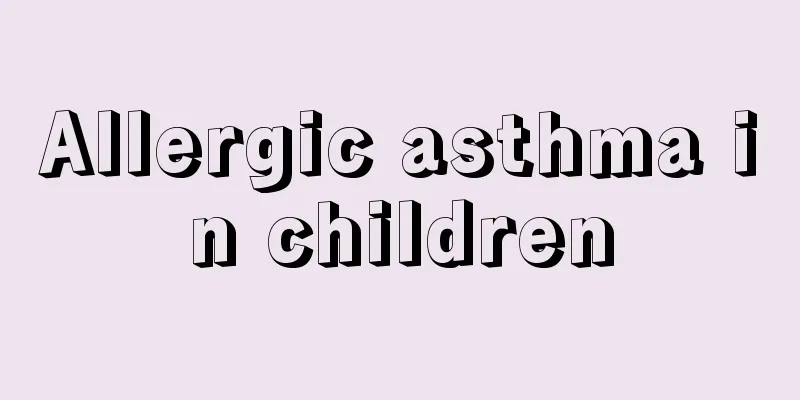The 40-day-old baby has a swollen belly?

|
For new parents, when the baby has a bulging belly, many parents mistakenly think that the baby is uncomfortable with a bloated belly. In fact, sometimes it is normal for the baby to have a bulging belly. The baby's abdominal wall muscles are generally not fully developed after birth, but they have to hold the internal organs, so they look bulging. In some cases, a baby's bloated belly may be caused by some illness or discomfort. The following will explain in detail why a 40-day-old baby has a bloated belly. 1. The baby's bloating has the following reasons1. The abdominal wall muscles are not fully developed A baby's belly always looks bulging and bigger than an adult's. This is mostly because the baby's abdominal wall muscles are not fully developed and are easily affected by gastrointestinal fullness. This is a normal phenomenon. As your baby grows, your tummy will gradually become flatter. In addition, the baby's body is round from front to back, not slightly flat like an adult's, which is why the baby's belly looks bulging. 2. Swallowing too much air Incorrect breastfeeding posture. When the baby is feeding, if the posture is not right or the baby sucks too quickly, it is easy to inhale too much air; The nipple does not fit. If the nipple is not the right size or the bottle is tilted, it is easy to inhale too much air and cause bloating; Incorrect feeding method. Some mothers are inexperienced and often wait until the baby is so hungry that he cries loudly before feeding. This can easily cause the baby to eat too quickly and cause bloating. Tips: Babies who are breastfed should try to hold most of the areola in their mouth; for babies who use pacifiers, the nipple should be filled with milk and free of air to avoid inhaling too much air and causing abdominal bloating. The choice of pacifier for your baby should be based on his or her age. It is normal if the belly is slightly bulging, but it is soft, the distension is even, the gas and bowel movements are normal, and the weight is normal. 3. Indigestion If you are troubled by constipation, or if you have poor digestion and absorption caused by milk protein allergy, lactose intolerance, enteritis, etc., it is easy to produce a lot of gas, resulting in constipation. If the baby's belly is not only bloated but also hard, it may be due to a cold abdomen or indigestion. You should pay attention to keeping the baby's abdomen warm.
If the baby cries too much, he will inhale a lot of air, creating a vicious cycle. Once the baby starts crying, he is likely to have abdominal bloating due to burping, which in turn will cause physical discomfort and make the baby cry even more. 5. Baby's gastrointestinal motility disorder There are two types. One is purely functional, called "pseudo-intestinal obstruction"; the other is "congenital megacolon" in which the gastrointestinal tract truly lacks ganglia. 2. How to judge whether the baby has abdominal distension A bulging baby's belly does not necessarily mean bloating. To determine whether it is caused by abdominal distension, you can try the following methods. Method 1: Touch with your hands. Let the baby lie down and gently press the belly with your hand. If it feels soft, it means there is no abdominal distension; if the belly feels a little hard, there may be bloating. Method 2: Look at the performance. If the baby is eating, sleeping and moving well, this is normal and no special treatment is needed. If the baby refuses to eat, cries, or vomits milk, it means that the abdominal distension is serious and you should go to the hospital for treatment.
1. When feeding your baby, you should make sure that the milk fills the front end of the bottle mouth and there is no slope to prevent the baby from inhaling air. 2. If the baby is hungry for too long, he or she may suffer from bloating and vomiting when feeding. So when the baby wants to breastfeed, you should feed him in time. If the baby cries during feeding, you should give more comfort, adjust the baby's mood, and avoid worsening bloating. 3. After feeding, hold the baby upright, let him lie on the mother's shoulder, and gently pat his back. This will help him burp and expel the air in the stomach. Do not let him lie down until he burps. 4. One hour after feeding, if the stomach is still bloated, you can gently massage his belly in a clockwise direction. This will help gastrointestinal motility and gas discharge, and improve digestion and absorption. 5. If breastfeeding, mothers should avoid eating foods that easily produce gas. Babies who are already eating complementary foods should eat less foods that easily produce gas, such as sweet potatoes, radishes, etc. |
<<: What ointment should be applied to baby eczema?
>>: Baby's belly is hard and swollen?
Recommend
What is the intelligence standard for a 5-year-old baby?
Because there was no relevant scientific basis be...
Ten-month-old baby frequently wakes up at night
The biggest wish of a mother when taking care of ...
What medicine should be used for baby's scrotal eczema
In the process of taking care of babies, many mot...
What should I do if my son has body odor?
Parents whose children suffer from body odor are ...
Is it okay to give rectal medication when a child has a fever?
Fever is a common clinical problem. People of all...
Can babies eat yogurt when they are 1 year old?
As we all know, the lactobacilli in yogurt are ac...
Five month old baby's urine is red
As soon as the baby is born, he becomes the most ...
What are the dangers of anal injections in children?
Because children's physical development is no...
What to do if your left eye is amblyopia
0~5 years old is the critical period for vision d...
What to do if your baby has acute pharyngitis and repeated fever
Because children are young, their bodies are not ...
What are the key points of nursing for newborn baby with eczema?
The immune function of newborns is not fully deve...
What are the nutritious breakfasts for young children?
Breakfast should be started from childhood, and i...
The main symptoms of zinc deficiency in babies
We all know that children are in the stage of phy...
Why does my baby sleep lightly?
Everyone knows that sleep has a very important im...
What should children eat to strengthen their spleen and stimulate their appetite?
Most parents worry every day whether their childr...









